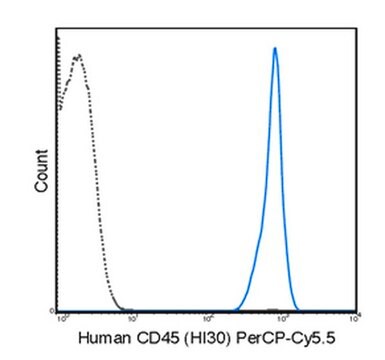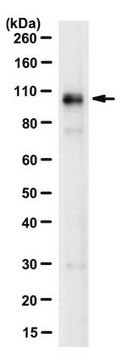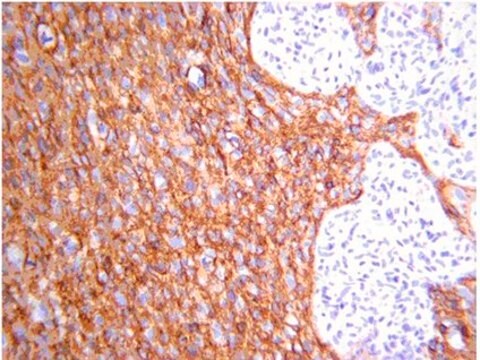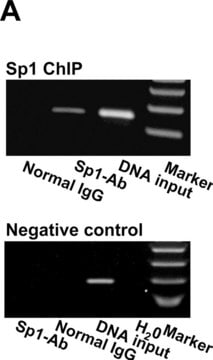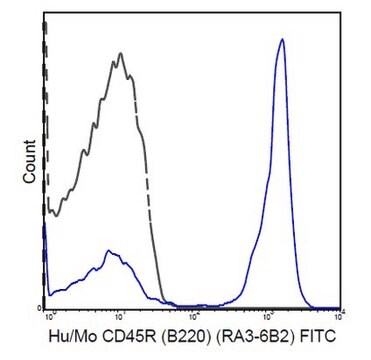MABN356
Anti-FKBP4 Antibody, clone 2H9.1
clone 2H9.1, from mouse
Synonyme(s) :
Peptidyl-prolyl cis-trans isomerase FKBP4, PPIase FKBP4, 51 kDa FK506-binding protein, FKBP51, 52 kDa FK506-binding protein, 52 kDa FKBP, FKBP-52, 59 kDa immunophilin, p59, FK506-binding protein 4, FKBP-4, FKBP59, HSP-binding immunophilin, HBI, Immunophi
About This Item
Produits recommandés
Source biologique
mouse
Niveau de qualité
Forme d'anticorps
purified immunoglobulin
Type de produit anticorps
primary antibodies
Clone
2H9.1, monoclonal
Espèces réactives
human
Technique(s)
immunohistochemistry: suitable (paraffin)
western blot: suitable
Isotype
IgG1κ
Numéro d'accès NCBI
Numéro d'accès UniProt
Conditions d'expédition
wet ice
Modification post-traductionnelle de la cible
unmodified
Informations sur le gène
human ... FKBP4(2288)
Description générale
Immunogène
Application
Neuroscience
Developmental Signaling
Qualité
Western Blotting Analysis: 0.25 µg/mL of this antibody detected FKBP4 in 10 µg of T47D cell lysate.
Description de la cible
Forme physique
Stockage et stabilité
Autres remarques
Clause de non-responsabilité
Vous ne trouvez pas le bon produit ?
Essayez notre Outil de sélection de produits.
En option
Code de la classe de stockage
12 - Non Combustible Liquids
Classe de danger pour l'eau (WGK)
WGK 1
Certificats d'analyse (COA)
Recherchez un Certificats d'analyse (COA) en saisissant le numéro de lot du produit. Les numéros de lot figurent sur l'étiquette du produit après les mots "Lot" ou "Batch".
Déjà en possession de ce produit ?
Retrouvez la documentation relative aux produits que vous avez récemment achetés dans la Bibliothèque de documents.
Notre équipe de scientifiques dispose d'une expérience dans tous les secteurs de la recherche, notamment en sciences de la vie, science des matériaux, synthèse chimique, chromatographie, analyse et dans de nombreux autres domaines..
Contacter notre Service technique